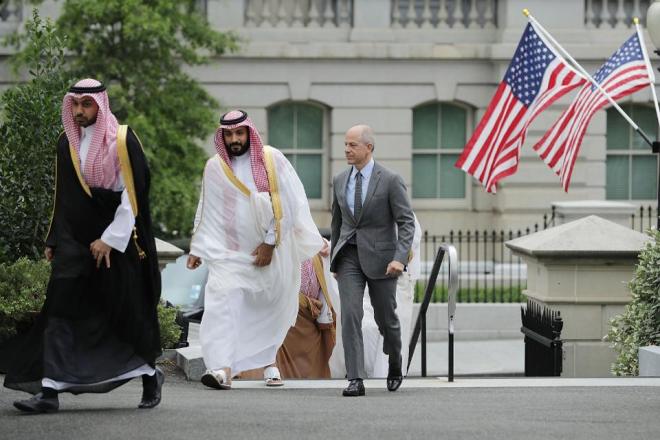
Monday June 26, 2017

Saudi Arabian King Salman bin Abdulaziz has shaken his nation’s closed political system by making his youngest son his heir.
Although heralded as a “modernizer,” 31-year-old Crown Prince Mohammed bin Salman, also known as MBS, is the architect of Riyadh’s disastrous attack on Yemen and disingenuous campaign to turn Qatar into a Saudi satellite. Given President Donald Trump’s warm embrace of the monarchy, Prince Salman’s recklessness is likely to draw the U.S. more deeply into destabilizing regional conflicts.
The Kingdom of Saudi Arabia is an anachronism, an absolute monarchy in a democratic age. A few thousand princes sit atop a society of roughly 32 million, treating the nation’s wealth as their family’s piggy bank. The royals live a generally licentious lifestyle outside of public view, but buy off the KSA’s fundamentalist Muslim clergy by promoting the intolerant Islamic sect of Wahhabism worldwide. The kingdom’s population long has been a generous source of people and money for radical and terrorist groups, including those attacking the West.
What amounts to a totalitarian state—there is no religious or political liberty and only limited social freedom, at least in public—has no popular appeal other than its open checkbook.
Which makes political Islam so threatening: a country like Iran is an awful model, but life revolves around something other than money. For that people are willing to fight and die.
In contrast, the Saudi royals buy domestic loyalty while hiring foreigners to do the dirty work. With little to fight for, even the Saudi military performs poorly despite the best American weaponry.
The kingdom confronts a multitude of challenges. For years a group of elderly brothers held the kingship and other top positions among themselves. This self-aggrandizing gerontocracy lost what little public appeal it had when oil prices dropped, reducing the financial benefits for the average Saudi. Riyadh’s cash reserves have fallen by almost a third since 2014.
In 2015 King Salman succeeded to the throne. He appointed his nephew, Mohammed bin Nayef, as Crown Prince, and his favorite son, MBS, as Deputy Crown Prince.
But the king emasculated his nominal successor, merging Prince Nayef’s court with his own and stripping the Crown Prince’s other positions of authority. The 81-year-old king introduced his son to Washington, seeking unofficial blessing for his plans to anoint MBS his successor.
The young prince, whose experience had been limited to serving his father, had the latter’s ear and effectively ruled. MBS won praise for seeking to diversify the economy. Last year he initiated Project 2030, which promotes development beyond oil.
He also imposed an austerity program, cutting benefits for the entitlement-minded population—only to restore some of them recently, to quiet discontent. Moreover, he loosened some social strictures and restricted the religious police, to the applause of many younger Saudis.